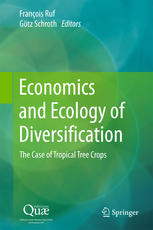

Most ebook files are in PDF format, so you can easily read them using various software such as Foxit Reader or directly on the Google Chrome browser.
Some ebook files are released by publishers in other formats such as .awz, .mobi, .epub, .fb2, etc. You may need to install specific software to read these formats on mobile/PC, such as Calibre.
Please read the tutorial at this link: https://ebookbell.com/faq
We offer FREE conversion to the popular formats you request; however, this may take some time. Therefore, right after payment, please email us, and we will try to provide the service as quickly as possible.
For some exceptional file formats or broken links (if any), please refrain from opening any disputes. Instead, email us first, and we will try to assist within a maximum of 6 hours.
EbookBell Team

4.3
48 reviewsThe monoculture systems that have been encouraged by governments since the 1960s have led to major socio-economic and environmental crises. Now the diversification of tree crop systems is advancing throughout the tropics. Why and when does diversification take place? What categories of farmers diversify? What obstacles do they have to overcome, and how do public and private policies interfere in this process? How do land use systems and landscapes evolve as a result of this diversification? According to the authors of this volume, diversification is certainly a response to market risks, but also to the depletion of environmental resources. Ecological changes such as declining soil fertility and increasing pressure from pests, diseases and weeds intensify at the end of monoculture cycles, driving crop change and diversification of farming systems. Through 15 case studies from Africa, Latin America, Asia and the Pacific, the authors provide us with in-depth insights into the economy and ecology of family agriculture and its recent developments.